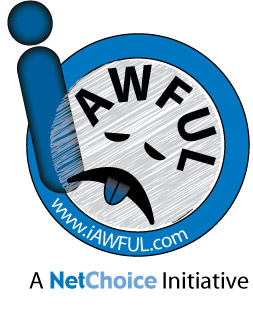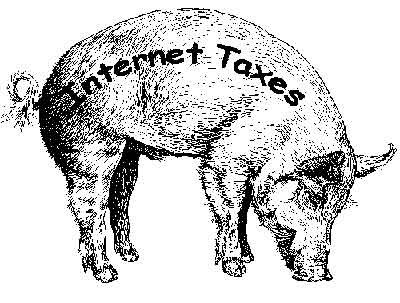 Recent developments have the events ticket market going paperless (tickets) and creating a paper trail (via proposed legislation).
Recent developments have the events ticket market going paperless (tickets) and creating a paper trail (via proposed legislation).
First, there’s Ticketmaster’s efforts to push “paperless tickets” into greater use. On Monday the Wall Street Journal reported on how the upcoming Miley Cyrus (aka Hannah Montana) tour will sell only paperless tickets.
I’ve previously blogged about paperless tickets here, here and here and continue to maintain that they are not about consumer convenience. Why? Well, at the venue you have to present the credit card used to purchase the tickets, which means everybody in your party has to arrive at the same time. And if you can’t go you won’t be able to resell your tickets or even give them away. Ticketmaster won’t give you a refund, that’s for sure!
With paperless tickets, Ticketmaster says it is trying to stop scalping, but why? As yesterday’s Los Angeles Times opinion piece cogently argues:
Secondary markets are important. They help overcome the inefficiencies in primary markets, while giving purchasers a safety net. If “paperless” tickets are the only option for consumers, there will be no secondary market unless Ticketmaster provides one. That’s quite a power grab for a company that’s awaiting the Justice Department’s approval for a blockbuster merger (with Live Nation, the country’s leading concert promoter).
Continue reading →

Sometimes legislation is so bad, it’s awful! or iAWFUL (the Internet Advocates’ Watchlist for Ugly Laws).
I’m happy to announce that NetChoice just created a top ten list where we’ll keep track of the worst of the worst. iAWFUL identifies the 10 worst legislative and regulatory proposals targeted at the Internet. We’ll continually update to reflect the most immediate dangers, based on regulatory severity and likelihood of passage.
While misguided Internet legislation is nothing new, the threat that such legislation poses has increased dramatically. The latest breed of legislative proposals are among the most restrictive we’ve ever seen, and they can crop up anywhere, as state lawmakers increasingly take the lead.
Bad Internet bills unfortunately take many forms, but we see 4 broad categories:
1. Misguided efforts to ‘child-proof’ the Internet
New Jersey Social Networking Bill (A 3757) – What’s wrong? It turns social networking sites into social networking police. It requires social networking websites to promptly review user allegations of harassment and abusive language, and to provide a report of the result of any review “upon request” from the user (blog post here).
California Social Networking Bill (AB 632) – What’s wrong? It can be abused to stifle free speech. It should seem obvious that if you post a photo onto a social networking site, it’s a public image. California doesn’t think so, so it’s micromanaging website terms of service. It started as a tech mandate, and would have imposed civil liability on websites that failed to implement technologies that would prevent copying or saving of images. This bill was recently amended to require social networking websites to disclose to its users that uploaded photos can be copied without consent by persons who view the image. The definition of a “social networking Internet Web site” is broad, so this would apply to a large number of sites on the Internet (previous blog post here).
2. There’s a tax for that!
Continue reading →
craigslist has filed a complaint against South Carolina Attorney General Henry McMaster, seeking to enjoin him from prosecuting the site for displaying the solicitations to prostitution that sometimes appear there. The complaint cites section 230 of the Communications Decency Act, the First Amendment, and a few other laws that craigslist believes protect it from liability.
The complaint makes a pretty good case that craigslist has taken reasonable steps, working with law enforcement, to keep prostitution off the site. With that it has done its part. If prosecutors want to go after prostitution, they can use craigslist to do so. They should not attack the messenger if consenting adults are trying to exchange money for sexual services in their local areas.
I’ve posted another response in the Cato Unbound online debate over the impact of Lawrence Lessig’s Code and Other Laws of Cyberspace upon the book’s 10th anniversary. You will recall that I went fairly hard on Prof. Lessig in my essay, “Code, Pessimism, and the Illusion of ‘Perfect Control,’” and Lessig responded with a counter-punch that went after me for it. I respond in a new essay about “Our Conflict of Cyber-Visions.” In the piece, I address Lessig’s assertion that I just didn’t understand the central teachings of Code, as well as his reluctance to accept the “cyber-collectivism” label that I affixed to his book and life’s work. Again, please hop over to Cato Unbound for my complete response.
But one thing from the essay that I thought worth reproducing here is my effort to better define the key principles that separate the cyber-libertarian and cyber-collectivist schools of thinking. I argue that it comes down to this:
The cyber-libertarian believes that “code failures” are ultimately better addressed by voluntary, spontaneous, bottom-up, marketplace responses than by coerced, top-down, governmental solutions. Moreover, the decisive advantage of the market-driven approach to correcting code failure comes down to the rapidity and nimbleness of those response(s).
Of course, another key difference relates to how quickly one jumps to the conclusion that “code failures” are actually occurring at all. I argue:
Continue reading →
 Watch out for a bill that will be heard in committee today in the North Carolina General Assembly that could be the first example (that I know) of a tax that on its face discriminates against the Internet. Senate Bill 99 singles-out the Internet ticket resale market for a “privilege tax”, and because it only applies to Internet sales, it violates the federal moratorium on “multiple or discriminatory taxes on electronic commerce.”
Watch out for a bill that will be heard in committee today in the North Carolina General Assembly that could be the first example (that I know) of a tax that on its face discriminates against the Internet. Senate Bill 99 singles-out the Internet ticket resale market for a “privilege tax”, and because it only applies to Internet sales, it violates the federal moratorium on “multiple or discriminatory taxes on electronic commerce.”
The Internet Tax Freedom Act Amendment Acts of 2007 (Public Law No: 110-108) provides a moratorium through November 1, 2014 that bars federal, state and local governments from imposing discriminatory Internet-only taxes such as bit taxes, bandwidth taxes, and email taxes.
It also prohibits the sort of prima facie discrimination exhibited by SB 99—“Reselling or offering to resell admission tickets on the Internet…”). Because this tax applies to revenues received from Internet transactions but not to offline sales, it clearly violates the Internet Tax Freedom Act.
Here’s where it gets even more interesting — this tax could even be an example of a “multiple” tax. SB 99 imposes a privilege tax on Internet ticket sales that amounts to double taxation. Income earned ticket reselling is already taxed. Companies and individuals that earn revenue from reselling tickets already pay income tax. Moreover, the same ticket could be resold numerous times, resulting in multiple taxation of the same increment over face value.
There are other problems with SB 99 that we lay out in our NetChoice letter, but federal law seems to be clearly against the bill.
There’s a movement afoot in Congress to advance legislation that would eviscerate the Commerce Clause of the Constitution, empower a state-based tax cartel, and potentially decimate the Internet economy in the process. Business Week has the details:
In the next week, legislators are expected to introduce bills in the House and Senate promising to do away with the “physical presence” requirement. If a bill passes — and that’s a big “if” — it would require all online retailers, except for the tiniest companies, to collect sales taxes in the 23 states that are part of the Streamlined Sales Tax Project. The states would compensate the retailers for the trouble, while promising not to sue them for tax collection mistakes that are made.
The Streamlined Sales Tax Project, or “SSTP”, sounds good in theory but would be disastrous in practice. Michael Graham of the Boston Herald penned an editorial about the SSTP today and he does a nice job pointing out why, when it comes to “tax simplification,” the devil is always in the details and those details are typically anything but “simple” (or taxpayer-friendly for that matter).
The real danger of the SSTP, however, is what it means for the Constitution and tax competition among the states. In this 2003 paper I penned with Veronique de Rugy for the Cato Institute, we showed why the SSTP would not only fail to simplify the sales tax code, but would actually cede dangerous taxing powers to state and local governments over the interstate marketplace. In the process, Veronique and I argued, a multi-state sales tax cartel would be spawned: Continue reading →
Ever wonder about this? In researching COPPA, I noticed the following definition of “Internet”
collectively the myriad of computer and telecommunications facilities, including equipment and operating software, which comprise the interconnected world-wide network of networks that employ the Transmission Control Protocol/Internet Protocol, or any predecessor or successor protocols to such protocol, to communicate information of all kinds by wire, radio, or other methods of transmission.
16 CFR § 312.2 (added in 1999). This definition comes from the COPPA law itself.
My quick and by no means exhaustive research (looked for the term “Internet means” in the CFR and U.S. Code) suggests that this is one of two definitions used, with slight variations, in Federal law (in less than a dozen places total).
The earliest reference I can find to this definition is from the Internet Tax Freedom Act of 1998 (the sales tax moratorium), which differed only slightly: “comprise” instead of “constitute” and omitting the “or other methods of transmission” part. This definition appears again in the child pornography rules issued in 2005 (28 CFR § 75.1).
The other definition I see is appears in the bankruptcy code (15 USCS § 163) and in the 2005 Internet gambling ban (31 CFR § 132.2 and 12 CFR § 233.2): “the international computer network of both Federal and non-Federal interoperable packet switched data networks.”
So which definition is better? Do both suck? Should we care? “Discuss amongst yourselves!”
But no kvetching about the use of the word “myriad.” Someone already beat you to the punch—and got smacked down: Continue reading →
Usually we hear that the Internet has created overabundance — an overload of information, communications, choices, all within easy grasp of a single mouse click. So it came as a bit of a surprise when I read yesterday’s New York Times article about event tickets, and how the Internet is making it harder — not easier — on fans:
grasp of a single mouse click. So it came as a bit of a surprise when I read yesterday’s New York Times article about event tickets, and how the Internet is making it harder — not easier — on fans:
Fans complain that the once simple process of getting tickets has been transformed into a complex and expensive digital chore.
The article goes on to mention Craigslist, eBay, and TicketsNow as places where fans can go to purchase tickets. The perception is that tickets go very quickly on first sale (usually through Ticketmaster) and that the only real alternative is through the secondary market, where tickets for high demand events can be expensive.
And it’s possible that the Internet has increased the ability to purchase — and abuse — the process of buying tickets when they first go on sale. But compared to the old way, the Internet is a much better buying experience and increases opportunities for fans. I remember having to wait in line at the local Waxie Maxie record store for my tickets. Sometimes the system was slow and wouldn’t respond well (or was it the pimply-faced teen that didn’t give a darn behind the counter?). The sale would end before I even got to the counter. Overall, it was a painful experience. And while it may have been singular (as in only one option), it was certainly not simple to drive somewhere, wait in line, and only use cash (I’m dating myself).
So why this Times article, at this time? Concerts are way more important today. Continue reading →
I’ve been catching up on Radio Berkman, the podcast produced by our friends at the Berkman Center for Internet & Society and a great companion to the TLF’s own Tech Policy Weekly Podcast. There’s been a lot of talk about government transparency on the TLF lately, including TPW 40: Obama, e-Government & Transparency. But that conversation has been mainly focused on how to make “public” records accessible.
The most recent Radio Berkman episode, “Can you Keep a Secret?” explores the thorny questions about what should be deemed public in the first place, and what should be classified:
The government keeps secrets. We take that for granted. But should we? Some speculate that intelligence agencies and elected officials are a little bit trigger happy with the “Top Secret” stamp, and that society would benefit from greater openness. With the government classifying millions of pages of documents per year – in a recent year the U.S. classified about five times the number of pages added to the Library of Congress – a great deal of useful human knowledge gets put under lock and key. But some argue that secrecy is still crucial to our national security.
Radio Berkman pokes its head into a recent talkback with the directors of the film Secrecy, Harvard University professors Peter Galison and Robb Moss. They are joined by Harvard Law School professors Jonathan Zittrain, Martha Minow, and Jack Goldsmith.
I look forward to seeing the film (when it comes out on Netflix).
What I found most interesting was the discussion of the essential trade-off in the relationship between the media and the state has always been between the media’s “independence” and its “responsibility” (~33:30 in). Even the staunchest critics of the national security state would probably accept that there are some stories in the media shouldn’t publish because they’d jeopardize the safety of Americans. But we all want the media to blow the whistle on the bad stuff that goes on behind a veil of secrecy. Drawing that line is a terribly difficult task. But it becomes even more complicated with the decline of traditional professional investigative journalism and the rise of blog/amateur journalism. Continue reading →
 Recent developments have the events ticket market going paperless (tickets) and creating a paper trail (via proposed legislation).
Recent developments have the events ticket market going paperless (tickets) and creating a paper trail (via proposed legislation).

 Watch out for a bill that will be heard in committee today in the North Carolina General Assembly that could be the first example (that I know) of a tax that on its face discriminates against the Internet.
Watch out for a bill that will be heard in committee today in the North Carolina General Assembly that could be the first example (that I know) of a tax that on its face discriminates against the Internet.  grasp of a single mouse click. So it came as a bit of a surprise when I read yesterday’s New York Times
grasp of a single mouse click. So it came as a bit of a surprise when I read yesterday’s New York Times  The Technology Liberation Front is the tech policy blog dedicated to keeping politicians' hands off the 'net and everything else related to technology.
The Technology Liberation Front is the tech policy blog dedicated to keeping politicians' hands off the 'net and everything else related to technology.